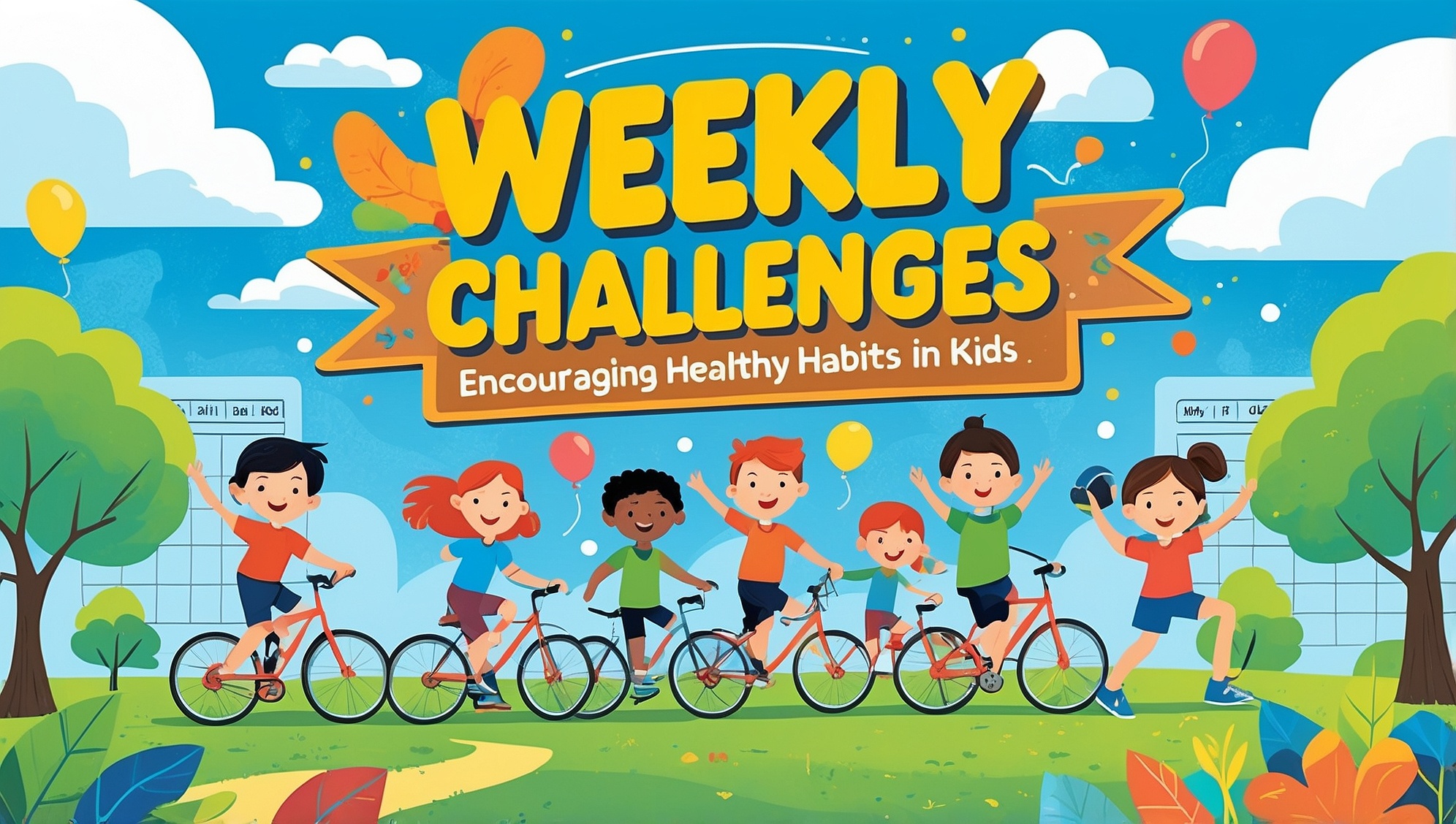Building healthy habits in kids requires consistency, creativity, and engagement. One effective strategy is incorporating weekly challenges that promote physical activity, balanced nutrition, and mindfulness. These challenges not only make learning fun but also foster a sense of achievement and teamwork within families.
Why Weekly Challenges Work
Children thrive on structure and motivation. Weekly challenges provide manageable, short-term goals that are easy to achieve while gradually introducing long-lasting habits. They also create opportunities for kids to develop responsibility, learn new skills, and experience the joy of accomplishing something meaningful.
How to Plan Weekly Challenges
- Set Clear Goals
- Define the focus of the week, such as staying hydrated, eating more vegetables, or engaging in physical activities.
- Ensure the goals are specific, measurable, and achievable for the child’s age.
- Involve the Kids
- Let them choose the challenge themes or tasks. This fosters a sense of ownership and commitment.
- Offer several options and allow them to vote on their favorite.
- Track Progress
- Use charts, stickers, or digital trackers to monitor accomplishments.
- Celebrate small wins to reinforce positive behavior.
- Make It Fun
- Incorporate games, rewards, and friendly competitions to keep kids interested.
- Use stories or role-playing to explain the importance of the tasks.
Challenge Ideas for Healthy Habits
Physical Activity Challenges
- Step Count Challenge
- Provide pedometers or use smartphone apps to track daily steps.
- Set a family goal, such as 10,000 steps collectively, and plan a reward when achieved.
- Active Hour
- Dedicate one hour each day to physical activities like dancing, biking, or playing tag.
- Rotate who picks the activity to keep it engaging.
- Fitness Bingo
- Create a bingo card with activities like jumping jacks, yoga poses, or short jogs.
- Kids win a small prize for completing a row.
Healthy Eating Challenges
- Rainbow Plate
- Encourage kids to eat fruits and vegetables of different colors throughout the week.
- Offer a prize for completing a “rainbow” of colors in their meals.
- Sugar Swap
- Challenge them to replace sugary snacks with healthier alternatives like fruits or nuts.
- Reward creativity in snack preparation.
- Try Something New
- Introduce a new healthy food each day, like quinoa, avocado, or spinach.
- Kids can rate the food and discuss their favorite ways to eat it.
Mindfulness and Emotional Health Challenges
- Gratitude Journal
- Encourage kids to write or draw three things they’re grateful for every day.
- Share these moments as a family during dinner.
- Daily Breathing Exercise
- Practice simple breathing techniques for 5-10 minutes each day.
- Use guided videos or apps for variation.
- Screen-Free Hour
- Dedicate one hour daily to non-screen activities like reading, crafting, or outdoor play.
- Make it a family-wide challenge to set an example.
Tips for Success
- Stay Consistent: Stick to a regular schedule for challenges, such as starting on Mondays and reviewing progress on Sundays.
- Use a Tracker: Assign a week number to each challenge, ensuring variety and progression over time.
- Celebrate Together: Recognize accomplishments as a family, using rewards that align with the healthy habits (e.g., a trip to the park, a fun outdoor adventure).
- Be a Role Model: Participate in the challenges yourself to inspire and motivate the kids.
- Adjust for Age: Tailor challenges to suit different age groups within the family. For instance, younger kids may prefer simpler tasks, while older kids might enjoy competitive elements.
Long-Term Benefits
Weekly challenges nurture a positive mindset around health and wellness. Over time, children internalize these habits, making them a natural part of their daily routine. They also build confidence and resilience, equipping them to make healthier choices as they grow.






